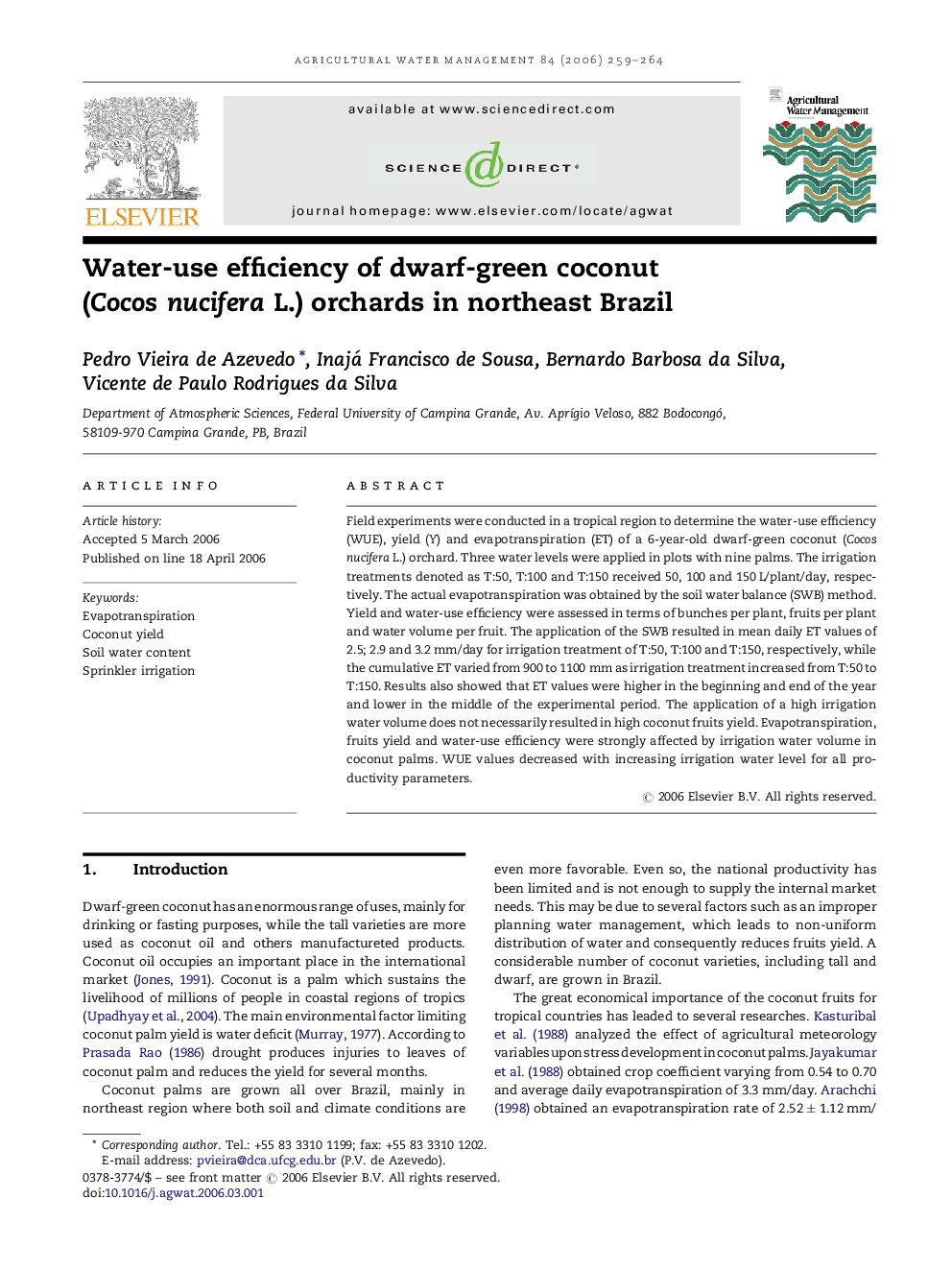| Article ID | Journal | Published Year | Pages | File Type |
|---|---|---|---|---|
| 4480543 | Agricultural Water Management | 2006 | 6 Pages |
Field experiments were conducted in a tropical region to determine the water-use efficiency (WUE), yield (Y) and evapotranspiration (ET) of a 6-year-old dwarf-green coconut (Cocos nucifera L.) orchard. Three water levels were applied in plots with nine palms. The irrigation treatments denoted as T:50, T:100 and T:150 received 50, 100 and 150 L/plant/day, respectively. The actual evapotranspiration was obtained by the soil water balance (SWB) method. Yield and water-use efficiency were assessed in terms of bunches per plant, fruits per plant and water volume per fruit. The application of the SWB resulted in mean daily ET values of 2.5; 2.9 and 3.2 mm/day for irrigation treatment of T:50, T:100 and T:150, respectively, while the cumulative ET varied from 900 to 1100 mm as irrigation treatment increased from T:50 to T:150. Results also showed that ET values were higher in the beginning and end of the year and lower in the middle of the experimental period. The application of a high irrigation water volume does not necessarily resulted in high coconut fruits yield. Evapotranspiration, fruits yield and water-use efficiency were strongly affected by irrigation water volume in coconut palms. WUE values decreased with increasing irrigation water level for all productivity parameters.
